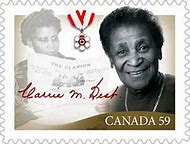Introduction
I am a stamp collector, an indifferent one. I buy first-day covers and souvenir stamps pretty haphazardly. But one theme that I’ve kept pursuing is “people.” You see, it is my lazy and pleasurable way of getting to know more about the history of the country I immigrated to in 1995. Canada Post issue stamps to honour Canadians periodically, and from the descriptive accounts that accompany such stamps, I get to know a bit of Canadian history. Not Canadian History, by no means, but the remembered persons are usually people of interest and distinction. It is good to know about them. Below is a list of some people of colour, mostly Black, who have been honoured. How many of them do you know?
Black History Month, also known as African-American History Month in the U.S., is an annual month in the United States, Canada, and Britain for remembering important people and events in the history of the African diaspora. It is celebrated annually in the U.S. and Canada in February and Britain in October. Canada Post has observed the month by issuing stamps to honour African Canadians.
The following list figures Black and other visible minorities in chronological order. It is by no means complete. The information and descriptions are gathered from words printed on first-day covers and in the Canada Post website, supplemented by Wikipedia.
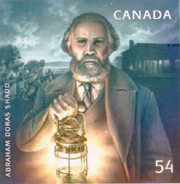 Abraham Doras Shadd (1801-1882), Ontario, first Black to serve in Canadian public office
Abraham Doras Shadd (1801-1882), Ontario, first Black to serve in Canadian public office
Abraham Doras Shadd was born in 1801 in Mill Creek Hundred, Delaware. Though a free-born and prosperous shoemaker, he devoted his life to the abolitionist movement. Shadd protested racism at countless abolitionist meetings and played a major role in the Underground Railroad, a secret route through which slaves were guided to freedom in Canada. As “stationmaster” and “conductor” for the Railroad, he provided escaping refugees with food, shelter, clothing and guidance. In 1851, Shadd and his family moved to southern Ontario’s North Buxton area, where they joined many of those he guided to freedom. He was the first Black person to serve in Canadian public office when he was elected to the Council of Raleigh, Ontario, in 1859.
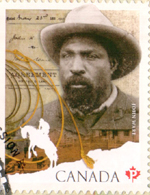 John Ware (1845 – 1905), Calgarian cowboy
John Ware (1845 – 1905), Calgarian cowboy
John Ware was an African American, later African Canadian, cowboy who helped establish the ranching industry in the part of the prairies that would eventually become Alberta.
Born into slavery in South Carolina, Ware travelled to Texas after the American Civil War, where he became an experienced cowhand. In 1882, strong and industrious, Ware drove 3,000 cattle across the border for the North West Cattle company, and then settled in Canada. He lived and worked first in the Calgary area, then established his own ranch in the Foothills in 1890. He would later move the ranch and his family to a new spot near Brooks, Alberta, in 1900.
With his great stature, abilities and sense of adventure, Ware had all the makings of a folk hero. Skilled with the lariat, he pioneered steer-wrestling and won his first competition at the Calgary Summer Fair of 1893, setting a precedent for what would become a highlight of the Calgary Stampede. Ironically, he died in 1905, when his horse tripped and crushed him.
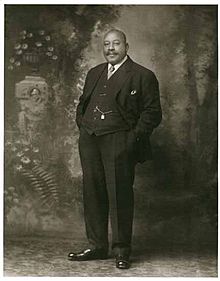 Seraphim “Joe” Fortes (1863 – 1922), Vancouver life-guard
Seraphim “Joe” Fortes (1863 – 1922), Vancouver life-guard
British West Indies native Seraphim “Joe” Fortes came to Vancouver in 1885, as a sailor on the Robert Kerr. He soon fell in love with English Bay and eventually took up residence there by living in a tent. A volunteer lifeguard, he protected swimmers, taught thousands of children in the area to learn to swim, and saved 29 lives, often while risking his own.
Later, the city added him to the payroll in 1901 as a lifeguard. Following his death in 1922, the city financed its largest ever public funeral for Fortes. A fountain still stands in Alexandra Park in memory of his contribution. The year 2013 marks the 150th anniversary of Joe’s birth and a stamp pays tribute to a Canadian whose love of swimming enriched the life of many Vancouverites.
Carrie Best (1903 – 2001), journalist in Nova Scotia and recipient of the Order of Canada
Black Canadian journalist Carrie M. Best was born on March 4, 1903, in New Glasgow, Nova Scotia. An early activist for Black civil rights in Canada, in 1946, she founded The Clarion, one of the first black-owned newspapers in Nova Scotia. Her radio show, The Quiet Corner, began in 1954, and aired for 12 years. She was a columnist for The Pictou Advocate, a newspaper based in Nova Scotia, from 1967 to 1975, and published That Lonesome Road, her autobiography in 1977. In 1974, she was made a Member of the Order of Canada and was promoted to Officer in 1979. She was posthumously awarded the Order of Nova Scotia in 2002.
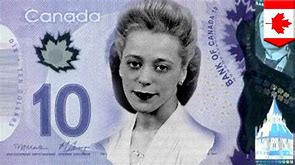 Viola Desmond (1914-1965) Discrimination against her led to de-segregation in Nova Scotia.
Viola Desmond (1914-1965) Discrimination against her led to de-segregation in Nova Scotia.
When Halifax-born beauty shop owner Viola (Davis) Desmond’s car broke down in New Glasgow, Nova Scotia, on November 8, 1946, the 32-year-old decided to wait out the repairs at a movie at the Roseland Theatre. Unaware that African Canadians were expected to watch from the balcony, she refused to leave her ground floor seat when asked and was dragged out, injuring her hip. She spent the night in jail, sitting upright, still wearing her white gloves. The next morning, she was charged with defrauding the province of the one-cent difference in the tax between the ground floor and the balcony seat and paid a $20 fine. Thanks to Desmond’s ensuing court case, Nova Scotia dismantled the segregation laws. In 2011, the Lieutenant Governor of Nova Scotia invoked the Royal Prerogative and granted Desmond a posthumous pardon, the first such to be granted in Canada, and the government of Nova Scotia formally apologized.
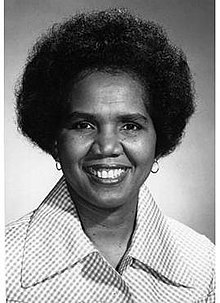 Rosemary Brown (1930-2003), British Columbia, first Black woman elected to MLA
Rosemary Brown (1930-2003), British Columbia, first Black woman elected to MLA
Rosemary Brown (née Wedderburn) was born in Jamaica on June 17, 1930. Though nearly a century had passed since Abraham Shadd (see above) first set foot on Canadian soil, skin colour remained an opportunity barrier for the country’s Black populations when Brown arrived in 1950 to study at Montreal’s McGill University. Brown fought for her rights and those of other women and minorities throughout her trailblazing career as an activist, feminist, opponent of racism, and champion of human rights. Brown became the first Black woman elected to public office in Canada when she was elected as a Member of the Legislative Assembly (MLA) in the British Columbia legislature in 1972. She also ran for the leadership of the federal New Democratic Party (NDP), making her the first woman to run for the leadership of a Canadian federal political party.
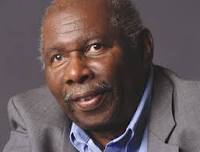 Oliver Jones (1934- ), Montreal, Quebec, jazz musician
Oliver Jones (1934- ), Montreal, Quebec, jazz musician
Oliver Jones’ career intertwines with the proud history of jazz in his native Montreal, the thriving city that in its heyday also produced Oscar Peterson, Oliver’s life-long friend and continuing inspiration. Oscar’s sister, Daisy Peterson Sweeney, became Jones’ first piano teacher, with lessons continuing for twelve years. In 1983, he signed with the jazz label Justin Time Records and went on to become one of the success stories among Canadian jazz musicians as his career developed from local to national, then international.
Jones has been recognized with numerous awards and honorary doctorates from several universities and is also the proud recipient of the Martin Luther King Jr. award. He has released an impressive 22 albums and continues to perform internationally. In a career filled with superlative achievements, Oliver Jones remains one of Canada’s finest musicians

Born on December 13, 1942, in Chatham, Ontario, Ferguson Arthur “Fergie” Jenkins is a former Major League pitcher, a three-time All-Star and the 1971 Cy Young Award winner. His father, a chef, immigrated from Barbados, while his mother was a descendant of U.S. slaves who escaped through the Underground Railroad before settling in southwestern Ontario. He spent most of his career playing for the Chicago Cubs, but also played for the Philadelphia Phillies, the Texas Rangers, and the Boston Red Sox. Inducted into the Canadian Baseball Hall of Fame in 1987, Jenkins also became the first and only Canadian elected to the National Baseball Hall of Fame in Cooperstown, New York, in 1991. In 2004, Fergie received his first honorary Doctorate of Law from McMaster University, and in 2007, was invested into the Order of Canada.
April 26, 2013, Vancouver


